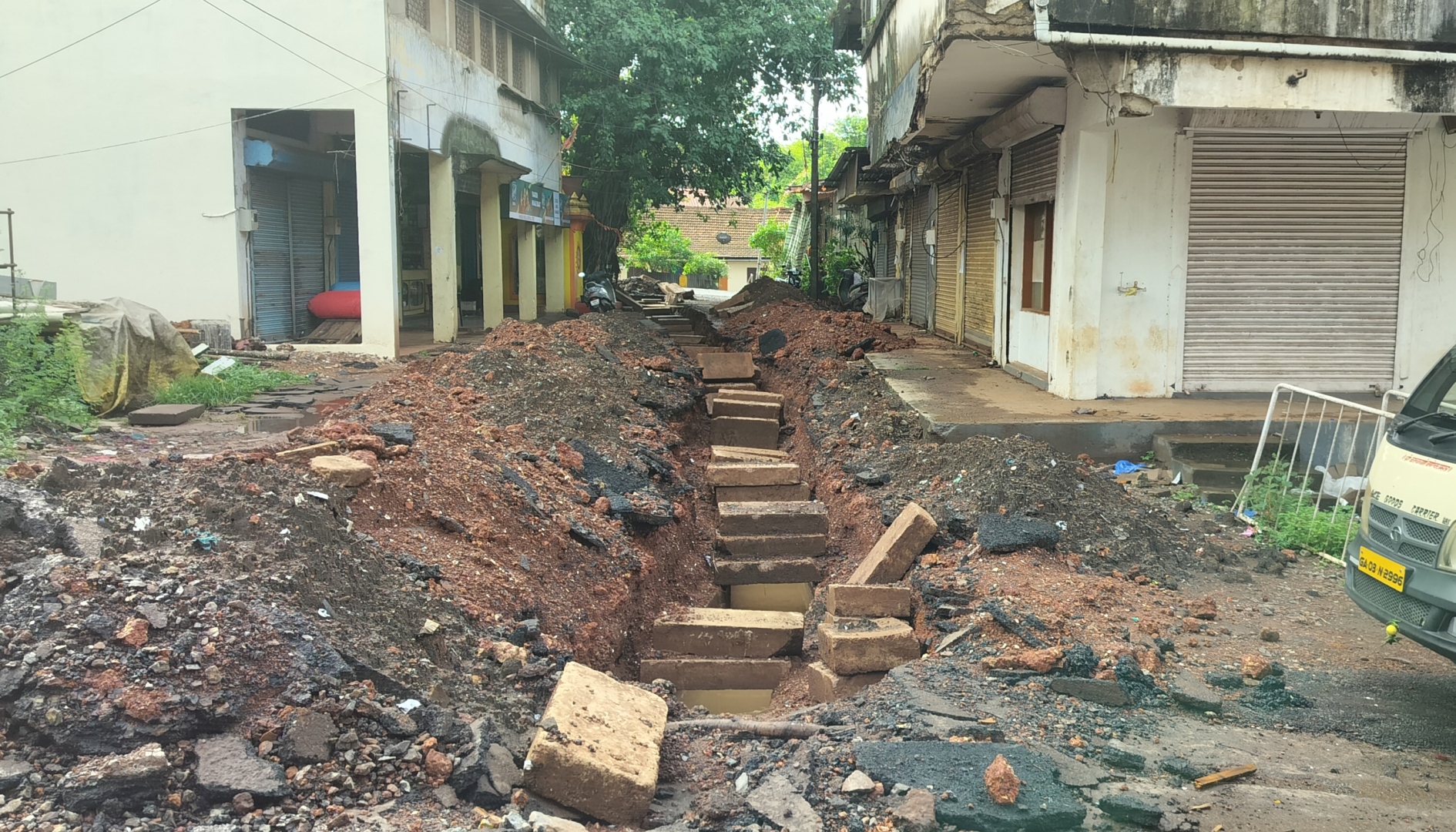Choked drains, last-minute digging raise questions on civic preparedness

TOO LITTLE, TOO LATE: A road near the Mapusa market lies dug up as workers attempt to clear a choked drain – ironically, well after the monsoon has already set in.
Photo Credits: Agnelo Pereira
MAPUSA
Even as the monsoon has firmly set in across Goa, pre-monsoon works in Mapusa are still underway, raising concerns over the civic body's preparedness and planning.
Roads in the heart of the town, including key market areas, have been dug up just days ago to clear long-neglected underground drains, exposing the town to further waterlogging and traffic woes.
One such road adjacent to the Mapusa municipal market was excavated earlier this week to clear a Portuguese-era underground drain that locals say has been choked for years.
The timing, however, has come under sharp criticism from residents and shopkeepers, who are questioning why such crucial work is being carried out well into the monsoon season.
“This is nothing short of poor planning. The rains have already started, and they’ve now decided to dig up the roads. What were they doing all this time? This kind of last-minute rush only creates more problems,” said a local shopkeeper, whose business has been affected by the ongoing work.
Sources within the civic administration revealed that several such colonial-era drains run beneath Mapusa town, many of which have been forgotten or ignored in planning discussions.
"These drains were constructed during the Portuguese time and have served their purpose for decades, but most of them are now choked and non-functional. A complete overhaul is needed, but this should be planned well before the onset of monsoon," a former municipal official, who wished to remain unnamed, admitted.
Adding to the confusion is the legality of the road digging.
With the North Goa Collector having issued a blanket ban on road cutting during the monsoon, locals are questioning whether the Mapusa Municipal Council (MMC) obtained the necessary permissions to undertake the excavation.
When contacted, a municipal officer in the engineering section acknowledged the delay in pre-monsoon works but defended the urgent need to address drainage issues.
“Yes, some of the pre-monsoon works were delayed due to contractor issues and administrative hurdles. But the drains in question were severely blocked and posed a flooding threat. We had no choice but to act quickly, even if the rains have begun,” he said.
The official also added that the council is working in coordination with the PWD and other departments to minimise inconvenience to the public.
“We are trying our best to complete the work at the earliest, and we ask the public to bear with us. The rains have complicated the timeline, but the work is necessary to avoid bigger disasters,” he added.
However, with the monsoon expected to intensify in the coming days, residents remain sceptical about how soon the work will be completed – and whether the town’s fragile infrastructure can withstand another season of haphazard planning.
As Mapusa battles the rain and incomplete infrastructure work, the larger question remains – will there ever be a year when pre-monsoon preparations are actually completed before the monsoon begins?